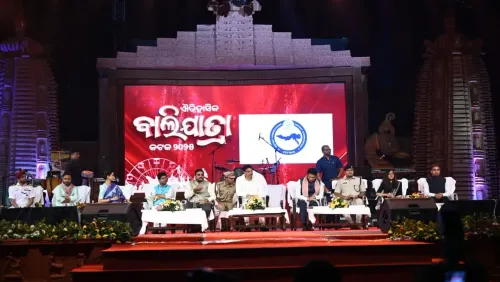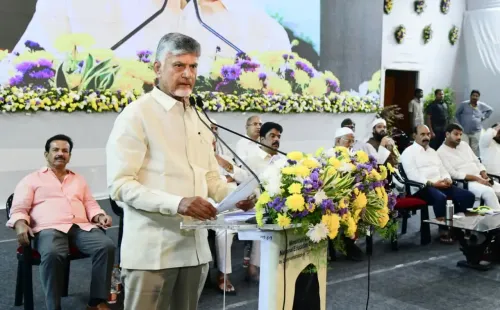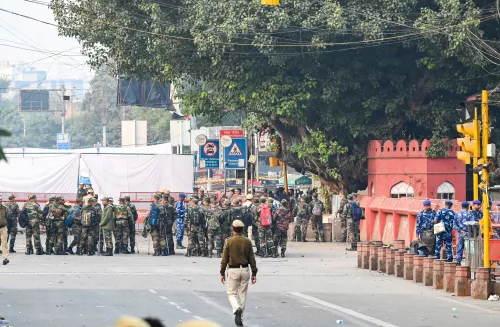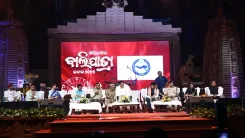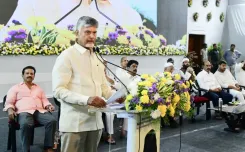Resistance Against Hindi Mandate: Supriya Sule's Stand on NEP
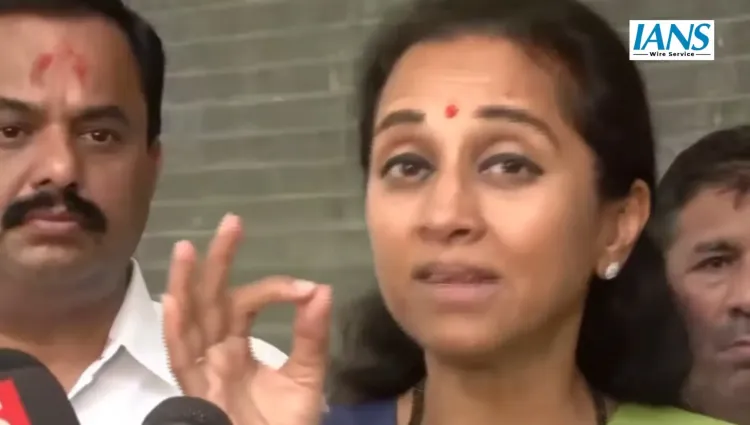
Synopsis
Key Takeaways
- Supriya Sule opposes the imposition of Hindi.
- The NEP implementation may harm Marathi.
- Evaluation in education is crucial as per ASER.
- Hasty NEP execution could negatively impact students.
- Opposition parties criticize the government's language policy.
Pune, April 19 (NationPress) NCP (SP) MP Supriya Sule vehemently criticized the MahaYuti government's initiative to impose Hindi as the third compulsory language for students in classes 1 to 5 across English and Marathi schools, asserting that such actions will not be tolerated.
“The undermining of Marathi through the forceful execution of the National Education Policy (NEP) 2020 in Maharashtra is unacceptable. I was the first to challenge the Education Minister’s claim regarding the mandatory implementation of the CBSE board in the state. Why is there a necessity to replace our existing state board with CBSE? Before diving into the language debate, we need to address the fundamental educational infrastructure in the state,” the NCP (SP) MP stated during a press conference.
Referencing the Annual Status of Education Report (ASER) highlighted by the Centre, Sule underscored the importance of assessing student performance in subjects like mathematics, science, and languages.
She cautioned that hastily adopting the NEP could negatively impact students, especially since teachers are not adequately prepared for such transitions.
“Any detrimental effects on the Marathi language due to the NEP implementation in Maharashtra will not be accepted. Marathi will always be prioritized,” she affirmed.
Sule expressed that a stable and forward-thinking government was anticipated following a significant mandate in Maharashtra. “Regrettably, in the past 100 days, there has been little significant advancement,” she remarked.
This statement from Sule follows fierce criticism from the opposition regarding the state government’s decision. Chief Minister Devendra Fadnavis defended the government's actions, stating: “We have already put the New Education Policy into practice. Therefore, no new directives have emerged regarding this. We insist that everyone in Maharashtra must learn Marathi. Furthermore, a single language for communication throughout the country is essential. Hindi can serve as a common language. Hence, it is important for people to learn Hindi; this is our goal.”
Raj Thackeray, chief of the Maharashtra Navnirman Sena, declared that the MNS will not accept this mandate and urged the state government to retract the decision immediately, warning, “If it is not revoked, a struggle is unavoidable.”
The Congress party has accused the BJP-led MahaYuti government of attempting to erode the Marathi language, identity, and culture by enforcing Hindi as a compulsory language for classes 1 to 5 in English and Marathi schools.
The state unit chief, Harshwardhan Sapkal, stated that the Marathi language embodies the identity and culture of Maharashtra, and the BJP government is making efforts to undermine this rich culture.
“Unity in diversity represents the true essence of India, and the BJP is scheming to eliminate that. The decision to impose Hindi as a mandatory language from primary education is fundamentally flawed and must be rescinded at once,” he stressed.

